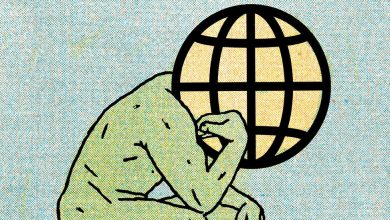Spotify Backs Joe Rogan’s Disinformation Machine

The streaming service Spotify would like us to believe it is grappling with profound matters of free speech and censorship as it faces mounting pressure over repeated Covid disinformation from its star podcaster, Joe Rogan.
But there’s a far simpler explanation — it’s about the money. And the listening public is the one paying the price.
In recent days several well-known musicians have protested Spotify’s enormously popular podcast “The Joe Rogan Experience,” in which Mr. Rogan has, among other things, irresponsibly promoted ivermectin, used to treat parasitic infections, as a Covid treatment, and protested vaccine requirements. And when his guests have offered up gobs of bad information about Covid and vaccine efficacy, he has offered up too little pushback.
After hundreds of medical experts signed an open letter to Spotify denouncing such disinformation, the singer Neil Young issued an ultimatum to Spotify: “They can have Neil Young or Rogan. Not both.” Joni Mitchell soon followed, as did others like the Spotify podcaster Brené Brown, who vowed over the weekend not to release new episodes of her shows “Unlocking Us” and “Dare to Lead.”
Rather than give in to critics, Spotify has held its ground and, in recent days, most of Mr. Young’s and Ms. Mitchell’s music has been pulled from its library. The service said suppressing or editing Mr. Rogan’s podcast would amount to censorship — but anyone who’s paid attention to online content moderation knows that’s a charade. Facebook, in particular, has trotted out that excuse time and again when it ought to have blocked or removed content or users.
Don’t be fooled. Peer just beneath the surface and it becomes clear that for big social media companies, matters of “censorship” are always matters of business. Facebook, for example, has had special exemptions from its rules for the very people who are most likely to be believed: politicians and celebrities. More such speech, more advertising revenue.
Facebook, Twitter and YouTube remove content posted by regular folks every day with no apparent worries about grand matters of free speech. Removing accounts by Donald Trump and, more recently, Marjorie Taylor Greene after repeated and flagrant policy violations was done only when it became a business imperative.
If, as Spotify implies, Mr. Rogan’s views offend its sensibilities, there ought to be nothing to prevent the service from scaling his podcast back. As the exclusive rights holder for the podcast, it has more control over and responsibility for Mr. Rogan’s content than do social media companies over users who post Covid misinformation.
But Spotify paid dearly for Mr. Rogan’s podcast (a reported $100 million) and the will of two rockers past their primes and a few others, does not — from a business perspective — outweigh Mr. Rogan’s 11 million regular listeners. Mr. Rogan has expressed contrition and vowed to more carefully vet his guests. Spotify, for its part, said it will post warning labels on his content and that of others directly discussing Covid.
But that’s all window dressing. Twitter and Facebook’s experiments with warning labels and links to authoritative sources proved unable to stop the spread of misinformation during the 2020 election and haven’t been effective in culling similarly dangerous ideas in the pandemic.
In a Sunday blog post that did not include any mention of Mr. Rogan or his podcast, Spotify’s chief executive, Daniel Ek, appears to take a strong stance against violations of the service’s rules. Still, he resisted calls to take more muscular action. “There are plenty of individuals and views on Spotify that I disagree with strongly,” Mr. Ek wrote. “We have a critical role to play in supporting creator expression while balancing it with the safety of our users. In that role, it is important to me that we don’t take on the position of being content censor.”
Whatever Spotify executives’ true feelings about Mr. Rogan or the pandemic, Mr. Ek is really playing defense for his cash cow — and if he gives in on this issue and he’ll have to give in on the next one and the next one after that. Given an opening, there’s no shortage of customers and artists who’d be thrilled to pressure the company to remove content from Barack and Michelle Obama’s production company, which has its own exclusive deal with Spotify. Losing Joni Mitchell is a shame, but losing Mr. Rogan or Mr. Obama would be terrible for business, whatever nonsense either may spew.
Investors have rewarded the strategy. Shares of Spotify are up more than 15 percent since Mr. Young’s music started being taken off the service last week, even amid what was the worst start to the year in over a decade for the broader market.
Mr. Ek’s blog post laid out the company’s rules of the road, but Spotify knew exactly who Mr. Rogan was when it signed its exclusive deal with him nearly two years ago. Before reaching the deal, Mr. Rogan had belittled transgender people, given airtime to Alex Jones and once likened a movie theater in a predominantly Black neighborhood as akin to “Planet of the Apes.”
Spotify knew what it was getting with Mr. Rogan. If its “longstanding platform rules” truly mattered or were being applied consistently, you’d expect Mr. Rogan to have already been dealt with.
Where the rubber meets the road for Spotify is a market backlash, a principled stance from bigger names like Taylor Swift, as some have suggested, or a slew of artists, not the trickle we’ve seen so far. So, for now, Mr. Rogan is untouchable and our health is at risk.
The Times is committed to publishing a diversity of letters to the editor. We’d like to hear what you think about this or any of our articles. Here are some tips. And here’s our email: [email protected].
Follow The New York Times Opinion section on Facebook, Twitter (@NYTopinion) and Instagram.




